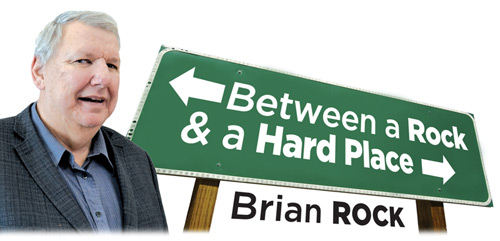The Greatest Threat to Democracy in Québec

What do you consider to be the greatest threat to democracy in Québec? Politicians elected who lack any discernible scruples. The developing disinterest in democracy on behalf of the younger generation. The disappointing rate of voter turnout in school board, municipal, provincial, and federal elections. The tyranny of the majority. The presence of the notwithstanding clause in the Canadian Charter of Rights and Freedoms.
Many politicians would certainly fail a lie detector test if it was administered while they were reciting the oath of office after being elected. It would be interesting to discover the percentage of our elected officials whose decisions while in office are infected with issues of conflict of interest.
Disinterest in democracy by millennials appears to be growing at an alarming rate. Political apathy and political alienation seem to becoming pandemic among younger people.
Imposing mandatory voting is an unpopular solution to address the concerns surrounding low voter turnout. Twinning municipal and school board elections has raised voter turnout in many jurisdictions. The use of electronic voting has also successfully raised turnout rates, but systems failures have certainly received negative media coverage when election results have been delayed or compromised.
Section 2 of the Canadian Charter of Rights and Freedoms of the Constitution Act, 1982 states: Everyone has the following fundamental freedoms: (a) freedom of conscience and religion; (b) freedom of thought, belief, opinion and expression, including freedom of the press and other media of communication; (c) freedom of peaceful assembly; and (d) freedom of association.
It is so troubling that Section 33 can be applied to Section 2: 33. (1) Parliament or the legislature of a province may expressly declare in an Act of Parliament or of the legislature, as the case may be, that the Act or a provision thereof shall operate notwithstanding a provision included in section 2 or sections 7 to 15 of the Canadian Charter.
It is so much more incomprehensible that Section 33 also indirectly affects Section 3 of the Charter of Human Rights and Freedoms of Québec, Chapter C-12, passed by the National Assembly of Québec in 1975:
3. Every person is the possessor of the fundamental freedoms, including freedom of conscience, freedom of religion, freedom of opinion, freedom of expression, freedom of peaceful assembly and freedom of association.
The present Coalition Avenir Québec Government was elected by only 37.42 % of the voters in the provincial general election of October 1, 2018. It can be argued that since only 66.45 % of the registered electors exercised their right to vote, that the present Government of Premier François Legault was really elected by only 24.87 % of the registered electors in 2018.
The present electoral system allows a Government with the majority of seats: 76 out of 125 ridings – 60.8 % of the seats in the National Assembly of Québec to impose closure (le bâillon in French) on legislation. The CAQ government has used le bâillon in the National Assembly four times in the last ten months.
On February 7, 2019, the Member of the National Assembly for Borduas, Government House Leader Simon Jolin-Barrette, introduced Bill n° 9: An Act to increase Québec’s socio-economic prosperity and adequately meet labour market needs through successful immigrant integration. Bill n° 9 was passed into law on June 16, 2019 after the imposition of closure. Simon Jolin-Barrette, also Minister of Immigration, Francization, and Integration; Minister responsible for the French Language; and Minister for Laicity and Parliamentary Reform; introduced in the National Assembly Bill n° 21: An Act respecting the laicity of the State on March 28, 2019. Again using closure, Simon Jolin-Barrette orchestrated the passage of Bill n° 21 into law on June 16, 2019.
Premier François Legault did not hesitate to use the notwithstanding clause regarding Subsection 2. (a) freedom of conscience and religion of the Canadian Charter and indirectly, Section 3 of the Québec Charter. Nonetheless, several coalitions of groups disputing the tyranny of the majority (of seats) are in the process of preparing court challenges to Law 21 regarding its constitutionality. Premier Legault defended his Government’s use of the notwithstanding clause to block court challenges of Law 21 calling it a “legitimate tool”.
On October 1, 2019, the MNA for Chambly, Jean-François Roberge, the Minister of Education and Higher Education, introduced in the National Assembly Bill n°40: An Act to amend mainly the Education Act with regard to school organization and governance. The Minister introduced so many friendly amendments to Bill n°40 that the government again resorted to closure to reduce drastically the time normally allowed for the opposition MNAs to debate the amendments. Bill n°40 was passed into law by closure in the middle of the night on Saturday, February 8, 2020. It is no surprise that coalitions of groups are in the process of preparing court challenges to Law 40 regarding the constitutionality of the abolition of the English-language school boards as well as the French-language commissions scolaires. Again the controversy of the tyranny of the majority (of seats) raised its ugly head.
The presence of the notwithstanding clause (Section 33) in the Constitution Act, 1982 is a uniquely Canadian situation. It removes fundamental freedoms for renewable periods of five years. Law 21 in Québec demonstrates how the fundamental freedoms of conscience and religion can disappear for five years and then be renewed under Section 33. The notwithstanding clause combined with the tyranny of the majority (of seats), voilà: the greatest threat to democracy in Québec!

